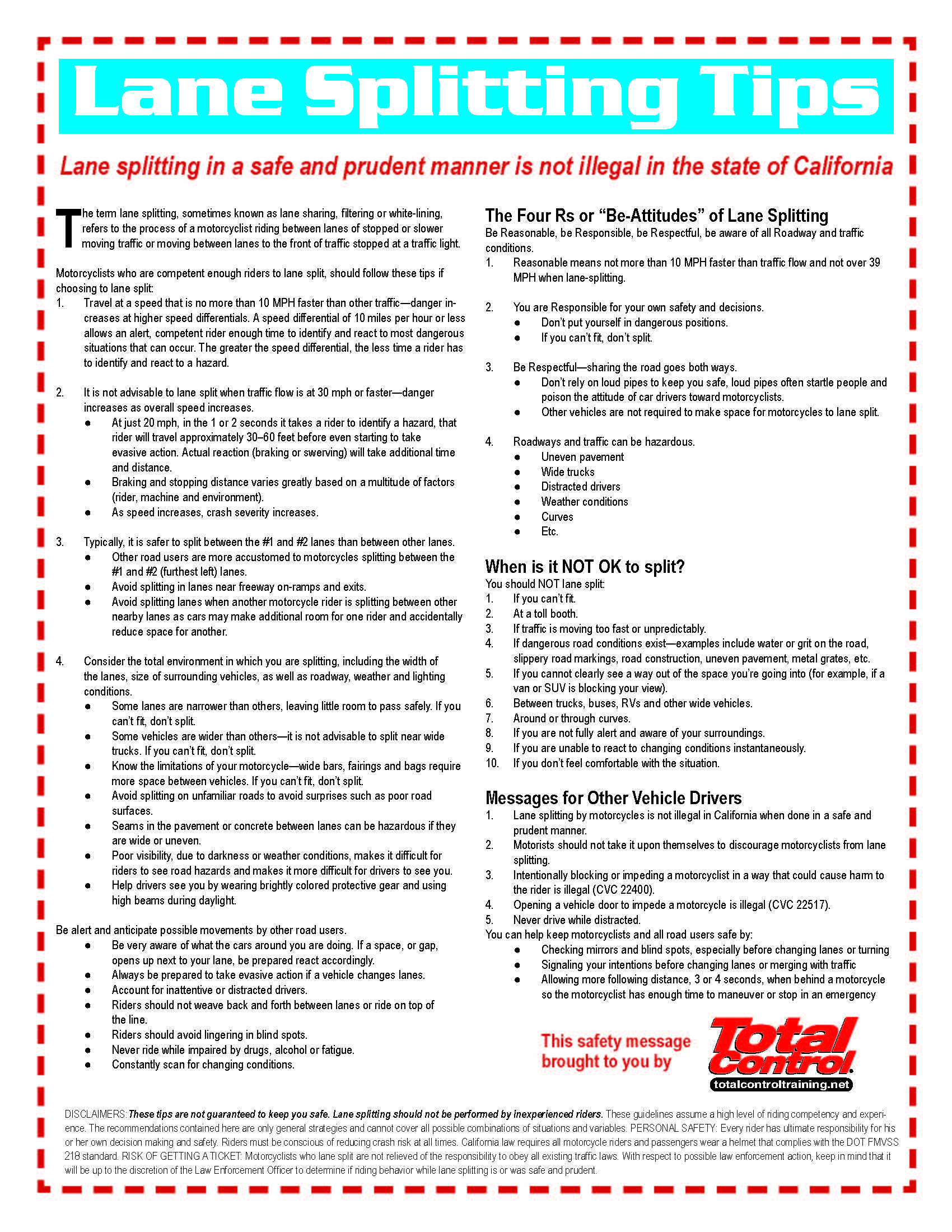Blog
Lane Splitting Tips - California
April 17, 2019 by Office

The term lane splitting, sometimes known as lane sharing, filtering or white-lining, refers to the process of a motorcyclist riding between lanes of stopped or slower moving traffic or moving between lanes to the front of traffic stopped at a traffic light.
Motorcyclists who are competent enough riders to lane split, should follow these tips if choosing to lane split:
1. Travel at a speed that is no more than 10 MPH faster than other traffic—danger increases at higher speed differentials. A speed differential of 10 miles per hour or less allows an alert, competent rider enough time to identify and react to most dangerous situations that can occur. The greater the speed differential, the less time a rider has to identify and react to a hazard...
Featured Riding School: Sharp Rider
April 8, 2019 by Office

Lee Parks interviews Donna Skinner of, Sharp Rider Motorcycle Training, located in Ontario/Canada.
Hi Donna, please introduce yourself to us: I am one of the owners of Sharp Rider Motorcycle Training. I’m a long-time rider, a passionate and dedicated instructor and the site administrator to all the learning and fun at the school! I own and ride a 2006 Suzuki Katana and my husband Randy, also an instructor for Sharp Rider rides a 2012 Honda CRB600RR. Besides all that, I have a business partner and we own GTAmotorcycle.com which is a motorcycle enthusiast’s online community which we established in 1999. All our businesses can be found on several social media platforms and that’s how we get the word out about classes and other motorcycle information into the community...
Ask an Instructor: Body Posture and Bike Control
April 8, 2019 by Office

Ask an Instructor
A common question asked by new riders is, "Why is body position so important?"
Instructor Colleen Sepulveda tells us the answer:
Correct body posture can make every ride safer by allowing the rider to control the motorcycle more efficiently and effectively while maintaining stability and minimizing the risk of injury. Unlike running and walking, instinct doesn’t guide us how to sit on a motorcycle properly. We learn proper body posture through professional training or trial and error (ouch!). There are a lot of precise inputs required by a rider to control a motorcycle and this must all be accomplished while balancing a single-track vehicle that is moving...


















